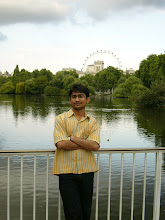By Abdullah Khoso
Saturday, 21 Aug, 2010
ARRESTING and trying children under the Anti-Terrorism Act 1997 (ATA) and in anti-terrorism courts (ATCs) is common in Pakistan. Children as young as 12 are being arrested and detained for alleged offences under the act.
Since the promulgation of the Juvenile Justice System Ordinance 2000 (JJSO), a number of children have been tried by the ATCs. Currently, there are over 15 juvenile offenders in the Borstal Institute and Juvenile Jail Faisalabad, who have been kept in solitary confinement under the orders of the anti-terrorism courts in Faisalabad and Multan.
One of the juveniles at the BI&JJ Faisalabad has been sentenced to 492 years in jail by the ATC in Multan. These children are sentenced to rigorous imprisonment although the latter and keeping children in solitary confinement is against the spirit of the JJSO and concept of reforming juvenile offenders.
Article 37 (b) of the United Nations Convention on the Rights of the Child says that the arrest, detention or imprisonment of a child shall be in conformity with the law and shall be used only “as a measure of last resort and for the shortest appropriate period of time”.
The government’s recent move to introduce tougher provisions in the ATA may add to more sufferings for children who are already facing stringent provisions of the same act. However, bringing the act to parliament may provide an opportunity to legislators to consider the government’s commitment to comply with international obligations and amend the act as is desired by the international humanitarian community.
In 1997, Nawaz Sharif’s government introduced the ATA to counter terrorist acts in Pakistan. It allowed the law-enforcement agencies to bypass general legislation on grounds of necessity. The ATA was amended in 2005 to enhance both minimum and maximum punishments as well as to curtail the power of the courts in granting adjournments so that speedy trials could be ensured.
The amendment included some other provisions too. Unfortunately, the legislators did not consider excluding children and women from the harsh criminal-oriented treatment prescribed in the ATA.
The ATA has an overriding effect on the JJSO, which is the only child-friendly law in Pakistan. The JJSO abolishes the death sentence for those below 18 years and increases the age of the child up to 18 years which, in the provincial laws like the Sindh Children Act (1955) and Punjab Youthful Offenders Ordinance (1983), was 16 years.
The JJSO says that children should not be handcuffed, put in fetters or given any corporal punishment at any time while in custody, whereas children are periodically produced in regular courts and ATCs while handcuffed. There are also cases of keeping juvenile offenders in fetters.
One of the accused assassins of Benazir Bhutto is a child, who was declared a juvenile during his first appearance in court. After two years the Lahore High Court ordered that his fetters be removed.
If alleged juvenile offenders are charged under the offences listed in paragraph four of the third schedule of the act, they can face death or life imprisonment and will be treated no different than adults. Death and life imprisonment are mandatory sentences under the act. Listed offences in the act are abduction or kidnapping for ransom and use of firearms or explosives by any device which includes bomb blasts at any place of worship, whether or not anybody is hurt or damage is caused, or firing.
The JJSO provides for the establishment of exclusive juvenile courts to try cases of juvenile offenders regardless of the nature of the offence committed. There was confusion whether the juvenile courts or ATCs would try the cases of children since the ATA has overriding effect on the provisions of the JJSO. In February 2006, a full bench of the Sindh High Court in a judgment said that juveniles charged under the ATA would be tried by the ATCs and not by the juvenile courts, but protection not inconsistent with the act under the JJSO would be accorded while trying cases of children.
The court appeared to have relied on the intention of the legislators who had drafted and passed the ATA in which they were not willing to spare children.
Therefore, the court interpreted against the JJSO and allowed the ATCs to try cases of children.In legal systems across the world, the alleged offender is not tried in his/her absence in order to uphold the right to a fair trial. It is a prerequisite in criminal cases for the accused to be present at his/her trial so that he/she may observe the trial and challenge the witnesses.
Though there are similar provisions in the general criminal laws of Pakistan in which all evidence is to be taken in the presence of the accused, the ATA, under Section 19 (10) permits the ATC to run the trial of the accused in his/her absence so that the purpose of speedy justice can be attained.
The speedy trial in the absence of the accused and trying children along with adults in the ATCs are open violations of Pakistan’s commitments under the UNCRC and the International Covenant on Civil and Political Rights (ICCPR), 1966. Pakistan ratified the UNCRC in 1990 and the ICCPR in 2010.
This is the right time for legislators to ensure Pakistan’s compliance with international standards because the fate of children tried under the ATA is in their hands. It is hoped that parliament will consider ending the prosecution of children under anti-terrorism laws.
http://www.dawn.com/wps/wcm/connect/dawn-content-library/dawn/the-newspaper/editorial/trying-children-for-terror-180
Sunday, August 22, 2010
Subscribe to:
Comments (Atom)
